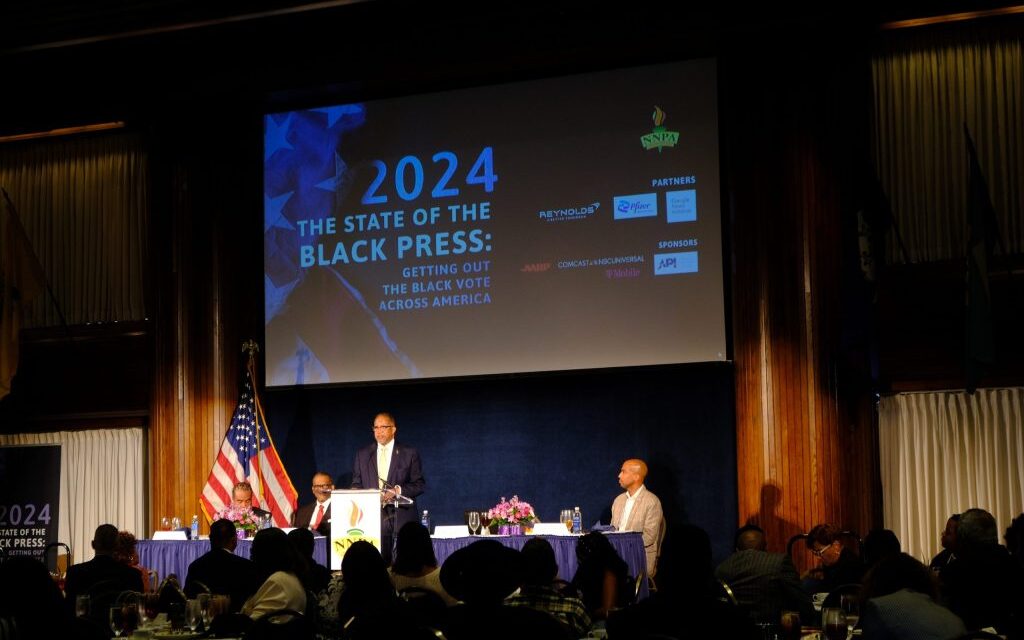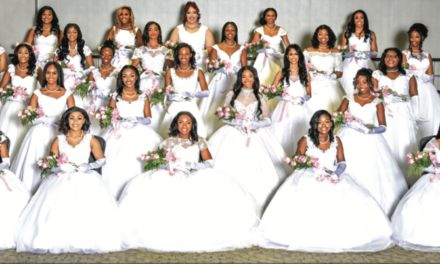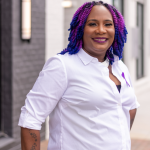By Alexis Taylor
AFRO Managing Editor
Members of Black Press gathered inside of the National Press Club on March 15 to learn more about the 2024 agenda goals and celebrate Black Press Week.
Hosted by the National Newspaper Publishers Association (NNPA), the event was one of many to celebrate the anniversary of the Black Press, which turned 197 years old on March 16.

In a year with so many key political positions at stake, leaders of NNPA are stressing the importance of reaching Black communities with important election information– a population often targeted with misinformation.
“We believe that getting out the Black vote is of grave concern and failure to do so will be leaving us in the hands of systemic inequalities that threaten what we believe to be our inalienable rights in the pursuit of life, liberty and justice for all,” said Bobby Henry, NNPA chairman and publisher of the Westside Gazette in Ft. Lauderdale, Fla.
Congressman James E. Clyburn, the U.S. Representative for South Carolina’s District 6, spoke via video message about the importance of Black newspapers. He touched on the luncheon’s theme: “Getting out the Black Vote in America.”
“In 2024 the role of the Black press will be more important than ever in convincing Black voters of the power of one vote,” said Clyburn. “In a digital age where disinformation spreads rapidly on social media, where many politicians lie with impunity and where technological advancements– like artificial intelligence– make it difficult to discern the truth, it is incumbent on Black journalism to communicate real stories about real people and do so truthfully irrespective of favor or profit lately.”
Clyburn said using Black publications to reach Black voters is imperative because many crucial historic decisions have been decided by an incredibly small margin.
“Reconstruction came to an end by one vote: 185 to 184. Jim Crow became the law of the land by one vote: eight to seven,” said Clyburn. “We must ask the Black community: ‘Are you going to be that one vote that brings in what everybody has been traditionally calling ‘the second Reconstruction?’”
“If we want to galvanize the Black community this election year, we must make them aware of the possible consequences and that means communicating authentic stories about what has happened, what is happening and what is likely to happen,” he continued.
Clyburn said members of the press must ask themselves if they would like to make a “headline or headway?”
“If we want to keep our democracy, we must make headway on informing the American people,” he said.
Throughout the event, speakers honed in on the fact that since its inception, the Black Press has long kept the Black community informed and abreast of issues that impact their daily lives and inequalities that need to be addressed.
The first Black Newspaper was released March 16, 1827 by Samuel Eli Cornish and John Brown Russwurm in New York City. Titled “Freedom’s Journal,” the men made clear why they created the publication in the very first issue, writing:
“We wish to plead our own cause. Too long have others spoken for us. Too long has the publick been deceived by misrepresentations in things which concern us dearly….”
Still today, 197 years later, members of the Black Press are “pleading their own cause.”
NNPA President and CEO, Dr. Benjamin Chavis, spoke to the publishers, editors, writers and sponsors gathered, imploring them to push forward the Black Press mission of keeping the Black community informed and pushing for progress and true equality.
“When John Russwurm and Samuel Cornish stated on the front page of the first edition of Freedom’s Journal that ‘we must plead our own cause’ this was more than just an editorial comment. It was a call to action,” said Chavis. “That was a bold statement of intentionality. That was a statement that understood the importance of not– in life– striving to get along just to get along with oppression, slavery and the other denial of the humanity of African people that was used to justify the transatlantic slave trade,” said Chavis.
After speaking about the legacies of great, Black publishers who dared to start Black publications during an era in a country prone to lynchings, Chavis spoke directly to the new generation of Black Press.
“We all stand on the shoulders of brothers and sisters who stood up who spoke out –never bowing down to the evil of the world,” he said. “There’s no question about what our posture should be in 2024 and thus, today, we ask ourselves in 2024: What is our cause?”
“Is it to appease the great-great grandchildren of those who committed Global genocide and exploitation of African people for 500 years– what is our cause today? As we face another existential threat to our very presence and existence in America and throughout the African world– what is our cause?” quipped Chavis. “Our cause is to publish and speak truth to power. Our cause is to wake our people up and to keep our families and communities awakened to the truth and to our collective responsibilities and obligations to continue to fight for freedom, justice, equality and equity.”
Chavis said that in 2024, “the Black Press serves today the majority of 50 million African Americans who live, reside and strive every day to make ends meet.” What started as a small publication in 1827 has now inspired roughly 250 Black papers into existence.
“The Black Press today continues the legacy, cause and purpose as first published by Russwurm and Cornish, 197 years ago,” said Chavis. “The Black Press is resilient and more determined than ever before to speak out, stand up and push forward to achieve excellence and progress. The Black Press today represents the best of America and its future.”











